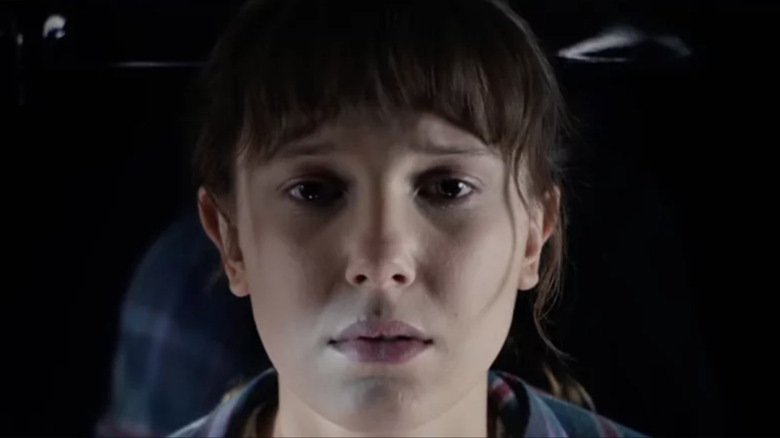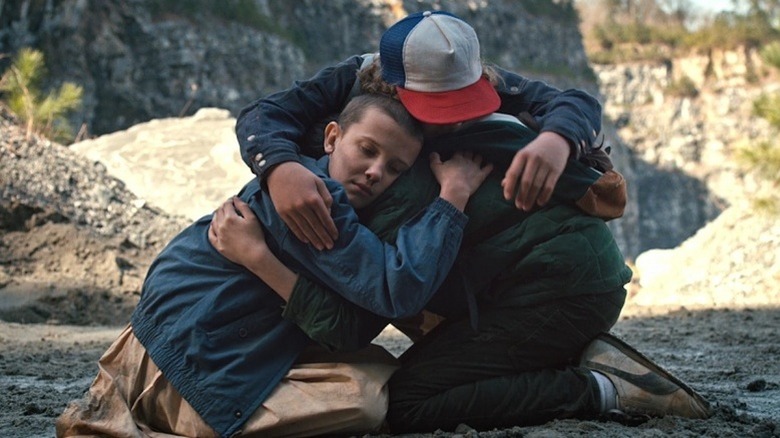The Real Reason Eleven Talks The Way She Does In Stranger Things
In 2016, the sci-fi series "Stranger Things" debuted on Netflix and received widespread critical acclaim for its riveting, action-packed storytelling. Created by Matt and Ross Duffer, the cult hit follows a group of teenagers in the 1980s as they navigate the horrors of adolescence and otherworldly monsters. As Emily Nussbaum wrote in her review for The New Yorker, "It's a genre throwback to simpler times, with heroes, villains, and monsters. Yet it's also haunting, and has a rare respect for both adult grief and childhood suffering."
Since 2016, three more seasons have aired on the streaming platform, including its long-awaited fourth installment, which premiered in early June. Notably, the first volume of Season 4 has re-awakened a passionate fanbase, many of whom have turned to social media to share their theories for the season's second volume, which is slated to air in July (via Seventeen). As a result, many viewers have discussed what they perceive to be a glaring plot hole — mainly, Eleven's (Millie Bobby Brown) seemingly newfound ability to speak full sentences as a child (via Reddit). In Season 1, the traumatized young girl, having spent most of her life in a sterile lab, could barely form words and struggled to understand basic phrasing. Yet, in Season 4, flashbacks to the same time period reveal an Eleven who engaged in extended conversations with her peers.
Recently, however, the Duffer Brothers responded to the confusion and appeared to put to bed any "plot hole" concerns.
Eleven loses her speech after experiencing a highly traumatic event
During an interview with Variety, the "Stranger Things" creators reflected on both the evolution — and regression — of Eleven's arc throughout childhood. When asked why her speech patterns appear to be inconsistent — particularly when compared to her peers' abilities to speak — the Duffer Brothers offered a clear explanation for this discrepancy. As Matt Duffer noted, although Eleven is initially socialized like the other children, she later engages in a dangerous — and exhausting — battle with One, the first child in Brenner's lab program. As a result, she falls into a coma and, once she has returned to consciousness, has forgotten almost all aspects of her past life.
From then on, Matt added, "[She] is raised in total isolation by Brenner, who doesn't dare bring in another number, for fear of this happening again. So he chooses to focus solely on her. She lives alone, in an isolated room. This is the Eleven that we meet in Season 1. Two years in isolation and really limited memories of what had happened to her. And so that's one reason for the speech."
Compellingly, the Duffers made a point to reveal that more context surrounding Eleven's background would be made available in Volume 2. Moreover, while discussing her character's overall growth this season in a separate interview, Brown emphasized that, ultimately, the show focuses on establishing Eleven's burgeoning autonomy (via IndieWire). In light of this information, it will certainly be exciting to see how El's journey develops, especially as she continues to process the hidden details of her past.

